10 Classic Novels by John Steinbeck
Requirements: .ePUB, .MOBI/.AZW reader, 10.0 MB
Overview: John Steinbeck III was an American writer. He wrote the Pulitzer Prize-winning novel The Grapes of Wrath, published in 1939 and the novella Of Mice and Men, published in 1937.
In all, he wrote twenty-five books, including novels, non-fiction books and several collections of short stories. In 1962 Steinbeck received the Nobel Prize for Literature. Most of his earlier work dealt with subjects familiar to him from his formative years. An exception was his first novel Cup of Gold which concerns the pirate Henry Morgan, whose adventures had captured Steinbeck's imagination as a child. In his subsequent novels, Steinbeck found a more authentic voice by drawing upon direct memories of his life in California. Later he used real historical conditions and events in the first half of 20th century America, which he had experienced first-hand as a reporter. Steinbeck often populated his stories with struggling characters; his works examined the lives of the working class and migrant workers during the Dust Bowl and the Great Depression. His later body of work reflected his wide range of interests, including marine biology, politics, religion, history, and mythology.
One of his last published works was Travels with Charley, a travelogue of a road trip he took in 1960 to rediscover America. He died in 1968 in New York of a heart attack and his ashes are interred in Salinas.
Genre: Fiction > General Fiction/Classics > Family Life > Humour > Satire
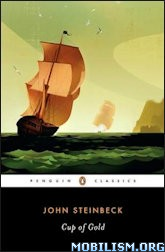
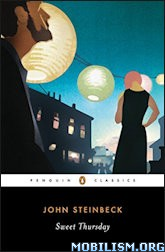
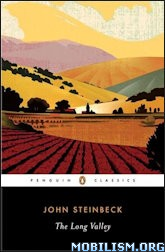
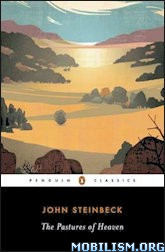
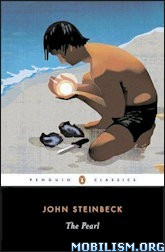
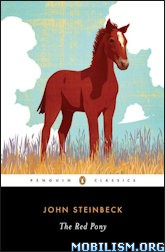
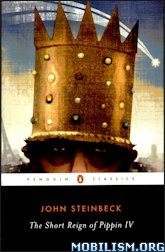
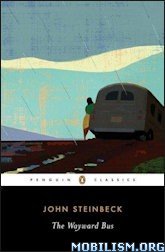
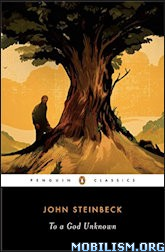
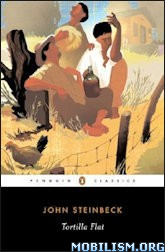
Cup of Gold:
A Standout in the Steinbeck canon, Cup of Gold is edgy and adventurous, brash and distrustful of society, and sure to add a new dimension to the common perception of this all-American writer. Steinbeck's first novel and sole work of historical fiction contains themes that resonate throughout the author's prodigious body of work. From the mid-1650s through the 1660s, Henry Morgan, a pirate and outlaw of legendary viciousness, ruled the Spanish Main. He ravaged the coasts of Cuba and America, striking terror wherever he went. And he had two driving ambitions: to possess the beautiful woman called La Santa Roja, and to conquer Panama, the "cup of gold."
Sweet Thursday:
In Monterey, on the California coast, Sweet Thursday is what they call the day after Lousy Wednesday, which is one of those days that are just naturally bad. Returning to the scene of Cannery Row—the weedy lots and junk heaps and flophouses of Monterey, John Steinbeck once more brings to life the denizens of a netherworld of laughter and tears—from Fauna, new headmistress of the local brothel, to Hazel, a bum whose mother must have wanted a daughter.
The Long Valley:
Today, nearly forty years after his death, Nobel Prize winner John Steinbeck remains one of America's greatest writers and cultural figures. We have begun publishing his many works for the first time as blackspine Penguin Classics featuring eye-catching, newly commissioned art. This season we continue with the seven spectacular and influential books East of Eden, Cannery Row, In Dubious Battle, The Long Valley, The Moon Is Down, The Pastures of Heaven, and Tortilla Flat. Penguin Classics is proud to present these seminal works to a new generation of readers-and to the many who revisit them again and again."
The Pastures of Heaven:
A cycle of twelve loosely connected short stories typifying Steinbeck's early writing style. Each story in the text is linked to the others by setting and the appearance of the Munroes, a family that comes to live on the abandoned and seemingly cursed Battle farm in the Pastures. The text offers an in depth exploration of individual and family problems against a backdrop of farming in rural central California.
The Pearl:
Today, nearly forty years after his death, Nobel Prize winner John Steinbeck remains one of America’s greatest writers and cultural figures. Over the next year, his many works published as black-spine Penguin Classics for the first time and will feature eye-catching, newly commissioned art.
The Red Pony:
Written at a time of profound anxiety caused by the illness of his mother, Nobel Prize winner John Steinbeck draws on his memories of childhood in these stories about a boy who embodies both the rebellious spirit and the contradictory desire for acceptance of early adolescence. Unlike most coming-of-age stories, the cycle does not end with a hero “matured” by circumstances. As John Seelye writes in his introduction, reversing common interpretations, The Red Pony is imbued with a sense of loss. Jody’s encounters with birth and death express a common theme in Steinbeck’s fiction: They are parts of the ongoing process of life, “resolving” nothing. The Red Pony was central not only to Steinbeck’s emergence as a major American novelist but to the shaping of a distinctly mid twentieth-century genre, opening up a new range of possibilities about the fictional presence of a child’s world.
The Short Reign of Pippin IV:
In his only work of political satire, The Short Reign of Pippin IV, John Steinbeck turns the French Revolution upside down as amateur astronomer Pippin Héristal is drafted to rule the unruly French. Steinbeck creates around the infamous Pippin the most hilarious royal court ever: Pippin's wife, Queen Marie, who "might have taken her place at the bar of a very good restaurant"; his uncle, a man of dubious virtue; his glamour-struck daughter and her beau, the son of the so-called "egg king" of Petaluma, California; and a motley crew of courtiers and politicians, guards and gardeners.
The Wayward Bus:
In his first novel to follow the publication of his enormous success, The Grapes of Wrath, Steinbeck’s vision comes wonderfully to life in this imaginative and unsentimental chronicle of a bus traveling California’s back roads, transporting the lost and the lonely, the good and the greedy, the stupid and the scheming, the beautiful and the vicious away from their shattered dreams and, possibly, toward the promise of the future.
To a God Unknown:
While fulfilling his dead father's dream of creating a prosperous farm in California, Joseph Wayne comes to believe that a magnificent tree on the farm embodies his father's spirit. His brothers and their families share in Joseph's prosperity and the farm flourishes - until one brother, scared by Joseph's pagan belief, kills the tree and brings disease and famine on the farm. Set in familiar Steinbeck country, "To A God Unknown" is a mystical tale, exploring one man's attempt to control the forces of nature and to understand the ways of God.
Tortilla Flat:
Adopting the structure and themes of the Arthurian legend, John Steinbeck created a “Camelot” on a shabby hillside above the town of Monterey, California, and peopled it with a colorful band of knights. At the center of the tale is Danny, whose house, like Arthur’s castle, becomes a gathering place for men looking for adventure, camaraderie, and a sense of belonging—men who fiercely resist the corrupting tide of honest toil and civil rectitude.
Download Instructions:
https://filedot.to/v5bnag8xko94
Mirror:
(Filehost down) http://www.centfile.com/poc0wzm8gyvr
Mirror:
(Closed Filehost) http://chedrives.com/0n6df1i3athj
NEW LINKS 10/MAR/2023
Requirements: .ePUB, .MOBI/.AZW reader, 10.0 MB
Overview: John Steinbeck III was an American writer. He wrote the Pulitzer Prize-winning novel The Grapes of Wrath, published in 1939 and the novella Of Mice and Men, published in 1937.
In all, he wrote twenty-five books, including novels, non-fiction books and several collections of short stories. In 1962 Steinbeck received the Nobel Prize for Literature. Most of his earlier work dealt with subjects familiar to him from his formative years. An exception was his first novel Cup of Gold which concerns the pirate Henry Morgan, whose adventures had captured Steinbeck's imagination as a child. In his subsequent novels, Steinbeck found a more authentic voice by drawing upon direct memories of his life in California. Later he used real historical conditions and events in the first half of 20th century America, which he had experienced first-hand as a reporter. Steinbeck often populated his stories with struggling characters; his works examined the lives of the working class and migrant workers during the Dust Bowl and the Great Depression. His later body of work reflected his wide range of interests, including marine biology, politics, religion, history, and mythology.
One of his last published works was Travels with Charley, a travelogue of a road trip he took in 1960 to rediscover America. He died in 1968 in New York of a heart attack and his ashes are interred in Salinas.
Genre: Fiction > General Fiction/Classics > Family Life > Humour > Satire










Cup of Gold:
A Standout in the Steinbeck canon, Cup of Gold is edgy and adventurous, brash and distrustful of society, and sure to add a new dimension to the common perception of this all-American writer. Steinbeck's first novel and sole work of historical fiction contains themes that resonate throughout the author's prodigious body of work. From the mid-1650s through the 1660s, Henry Morgan, a pirate and outlaw of legendary viciousness, ruled the Spanish Main. He ravaged the coasts of Cuba and America, striking terror wherever he went. And he had two driving ambitions: to possess the beautiful woman called La Santa Roja, and to conquer Panama, the "cup of gold."
Sweet Thursday:
In Monterey, on the California coast, Sweet Thursday is what they call the day after Lousy Wednesday, which is one of those days that are just naturally bad. Returning to the scene of Cannery Row—the weedy lots and junk heaps and flophouses of Monterey, John Steinbeck once more brings to life the denizens of a netherworld of laughter and tears—from Fauna, new headmistress of the local brothel, to Hazel, a bum whose mother must have wanted a daughter.
The Long Valley:
Today, nearly forty years after his death, Nobel Prize winner John Steinbeck remains one of America's greatest writers and cultural figures. We have begun publishing his many works for the first time as blackspine Penguin Classics featuring eye-catching, newly commissioned art. This season we continue with the seven spectacular and influential books East of Eden, Cannery Row, In Dubious Battle, The Long Valley, The Moon Is Down, The Pastures of Heaven, and Tortilla Flat. Penguin Classics is proud to present these seminal works to a new generation of readers-and to the many who revisit them again and again."
The Pastures of Heaven:
A cycle of twelve loosely connected short stories typifying Steinbeck's early writing style. Each story in the text is linked to the others by setting and the appearance of the Munroes, a family that comes to live on the abandoned and seemingly cursed Battle farm in the Pastures. The text offers an in depth exploration of individual and family problems against a backdrop of farming in rural central California.
The Pearl:
Today, nearly forty years after his death, Nobel Prize winner John Steinbeck remains one of America’s greatest writers and cultural figures. Over the next year, his many works published as black-spine Penguin Classics for the first time and will feature eye-catching, newly commissioned art.
The Red Pony:
Written at a time of profound anxiety caused by the illness of his mother, Nobel Prize winner John Steinbeck draws on his memories of childhood in these stories about a boy who embodies both the rebellious spirit and the contradictory desire for acceptance of early adolescence. Unlike most coming-of-age stories, the cycle does not end with a hero “matured” by circumstances. As John Seelye writes in his introduction, reversing common interpretations, The Red Pony is imbued with a sense of loss. Jody’s encounters with birth and death express a common theme in Steinbeck’s fiction: They are parts of the ongoing process of life, “resolving” nothing. The Red Pony was central not only to Steinbeck’s emergence as a major American novelist but to the shaping of a distinctly mid twentieth-century genre, opening up a new range of possibilities about the fictional presence of a child’s world.
The Short Reign of Pippin IV:
In his only work of political satire, The Short Reign of Pippin IV, John Steinbeck turns the French Revolution upside down as amateur astronomer Pippin Héristal is drafted to rule the unruly French. Steinbeck creates around the infamous Pippin the most hilarious royal court ever: Pippin's wife, Queen Marie, who "might have taken her place at the bar of a very good restaurant"; his uncle, a man of dubious virtue; his glamour-struck daughter and her beau, the son of the so-called "egg king" of Petaluma, California; and a motley crew of courtiers and politicians, guards and gardeners.
The Wayward Bus:
In his first novel to follow the publication of his enormous success, The Grapes of Wrath, Steinbeck’s vision comes wonderfully to life in this imaginative and unsentimental chronicle of a bus traveling California’s back roads, transporting the lost and the lonely, the good and the greedy, the stupid and the scheming, the beautiful and the vicious away from their shattered dreams and, possibly, toward the promise of the future.
To a God Unknown:
While fulfilling his dead father's dream of creating a prosperous farm in California, Joseph Wayne comes to believe that a magnificent tree on the farm embodies his father's spirit. His brothers and their families share in Joseph's prosperity and the farm flourishes - until one brother, scared by Joseph's pagan belief, kills the tree and brings disease and famine on the farm. Set in familiar Steinbeck country, "To A God Unknown" is a mystical tale, exploring one man's attempt to control the forces of nature and to understand the ways of God.
Tortilla Flat:
Adopting the structure and themes of the Arthurian legend, John Steinbeck created a “Camelot” on a shabby hillside above the town of Monterey, California, and peopled it with a colorful band of knights. At the center of the tale is Danny, whose house, like Arthur’s castle, becomes a gathering place for men looking for adventure, camaraderie, and a sense of belonging—men who fiercely resist the corrupting tide of honest toil and civil rectitude.
Download Instructions:
https://filedot.to/v5bnag8xko94
Mirror:
(Filehost down) http://www.centfile.com/poc0wzm8gyvr
Mirror:
(Closed Filehost) http://chedrives.com/0n6df1i3athj
NEW LINKS 10/MAR/2023
For any Re-Ups use  on the right. Many thanks to the original up-loaders
on the right. Many thanks to the original up-loaders
 on the right. Many thanks to the original up-loaders
on the right. Many thanks to the original up-loaders